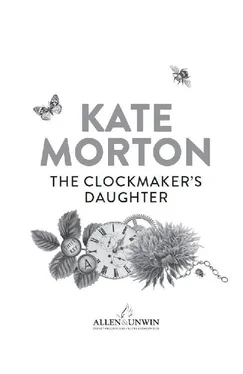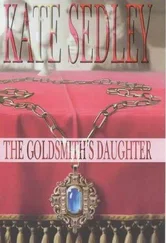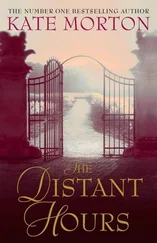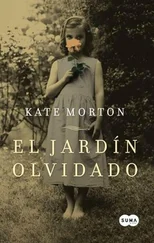Kate Morton - The Clockmaker's Daughter
Здесь есть возможность читать онлайн «Kate Morton - The Clockmaker's Daughter» весь текст электронной книги совершенно бесплатно (целиком полную версию без сокращений). В некоторых случаях можно слушать аудио, скачать через торрент в формате fb2 и присутствует краткое содержание. Год выпуска: 2018, Издательство: Allen & Unwin, Жанр: Старинная литература, на английском языке. Описание произведения, (предисловие) а так же отзывы посетителей доступны на портале библиотеки ЛибКат.
- Название:The Clockmaker's Daughter
- Автор:
- Издательство:Allen & Unwin
- Жанр:
- Год:2018
- ISBN:нет данных
- Рейтинг книги:4 / 5. Голосов: 1
-
Избранное:Добавить в избранное
- Отзывы:
-
Ваша оценка:
- 80
- 1
- 2
- 3
- 4
- 5
The Clockmaker's Daughter: краткое содержание, описание и аннотация
Предлагаем к чтению аннотацию, описание, краткое содержание или предисловие (зависит от того, что написал сам автор книги «The Clockmaker's Daughter»). Если вы не нашли необходимую информацию о книге — напишите в комментариях, мы постараемся отыскать её.
The Clockmaker's Daughter — читать онлайн бесплатно полную книгу (весь текст) целиком
Ниже представлен текст книги, разбитый по страницам. Система сохранения места последней прочитанной страницы, позволяет с удобством читать онлайн бесплатно книгу «The Clockmaker's Daughter», без необходимости каждый раз заново искать на чём Вы остановились. Поставьте закладку, и сможете в любой момент перейти на страницу, на которой закончили чтение.
Интервал:
Закладка:
Martin grabbed my wrist then and started pulling me towards the door of the Mulberry Room. He was whispering that it was going to be all right, that he would make it all right, that I wasn’t to be sad because he had an idea. We would take the Blue, he and I, and instead of delivering it back to London we would take it ourselves, the diamond and the tickets, too, and sail to America. It was the land of new beginnings, after all, just like it said in the letters that Jeremiah brought for me each month.
He meant, of course, the letters that Mrs Mack used to read out loud, the news from America, the news from my father, all of it made up. It was a breathtaking deception. But what moral platform did I have from which to beat my breast? I was a petty thief, a pretender, a woman who had taken on an assumed name without a blink of hesitation.
Why, I had deceived Mrs Mack little more than a fortnight ago, when I told her of my intention to go away with Edward to the country. Mrs Mack would never have let me go away willingly, not to Birchwood Manor for the summer and not on to America with Edward. Over the years, I had become her most reliable earner, and in my short life there was one thing I had learned for certain: people become used to riches quickly, and even if they’ve done nothing themselves to earn the wealth, once it’s been had, they consider it their due.
Mrs Mack believed that she was entitled to everything that I was and that I had, and so, in order that I might leave London with Edward, I told her it was all part of a scheme. I told her that within a month I would return with riches the likes of which they’d never seen.
‘What sort of riches?’ said Mrs Mack, never one for generalities.
And because the best deceptions always skirt the truth, I told them about Edward’s plans to paint me and his idea to include the priceless Radcliffe Blue.
It was dark in the chamber and very hard to breathe. It was eerily quiet.
I thought about Edward and wondered what was happening with Fanny down by the woods.
I thought about Pale Joe and the letter I had sent him from the village telling him that I was going to America; that he might not hear from me for some time but he was not to worry. And I thought about the photograph that I had enclosed for him ‘to remember me by’, the photograph that Edward had taken with Felix’s camera.
I thought of my father and the weight of his hand around mine, the supreme happiness I had felt when I was tiny and we set out together on our railway journeys to visit a broken clock.
And I thought of my mother, who was like sunlight on the surface of my memories, bright and warm but shifting. I remembered being with her one day at the edge of the river that ran behind our house in London. I had dropped a scrap of ribbon I’d been treasuring and was forced to watch, helpless, as the current took it away. I had cried, but my mother had explained to me that it was the nature of the river. The river, she said, is the greatest collector of them all; ancient and indiscriminate, carrying its load on a one-way journey towards the depthless sea. The river owes you no kindness, little Bird, she said, so you must be careful.
I realised that I could hear the river in that pitch-black hole, that I could feel its currents lulling me to sleep …
And then I heard something else, a set of footprints heavy on the floorboards above, and a muffled voice: ‘I have the tickets.’ It was Martin, right above the trapdoor. ‘Where have you got to? We just need the Blue and then we can get out of here.’
And then there came another noise, a door slamming downstairs, and I knew that someone else was in the house.
Martin ran towards the interruption.
Raised voices, a scream.
And then a gunshot.
Moments later, more shouting – Edward calling out.
I felt about for a latch to release the trapdoor, but no matter where my fingers traced, I could not find one. I could not sit up; I could not turn around. I began to grow frightened, and the more I panicked, the shorter my breaths became, the harder they stuck against the back of my throat. I tried to answer, but my voice was little more than a whisper.
It was hot, so hot.
Edward called out again; he called for me, his voice sharpened with fear. He called for Lucy. He sounded a long way away.
Rapid footprints overhead, lighter than Martin’s, coming from the hallway upstairs, and then a tremendous thump that made the floorboards rattle.
Mayhem, but not for me.
I was a boat on a gentle tide, the river shifting softly beneath me, and as I closed my eyes another memory came. I was a baby, not yet a year old, lying in a crib in an upstairs room of the little house by the river in Fulham. A warm breeze wafted through the window and brought with it the sounds of morning birds and the secretive smells of lilac and mud. Light was turning circles on the ceiling, in step with the shadows, and I was watching them dance. I reached up to clutch at them, but they slipped through my fingers every time …
CHAPTER TWENTY-SEVEN
Spring, 1882
‘A nice old place. Been a bit neglected inside, but good bones. Let me just get the door open and you can see for yourself what I mean.’
Lucy did not do herself or Edward’s lawyer the discourtesy of pretending that she had never been inside Birchwood Manor; neither did she volunteer the fact. She said nothing and waited instead for the man to jiggle the key in the lock.
It was a morning in early spring and the air was crisp. Someone had been maintaining the garden – not perfectly, but with sufficient care to stop the tendrils overgrowing the paths. The honeysuckle had a promising layer of buds, and the first jasmine flowers along the wall and around the kitchen window were starting to open. They were late. The laneways of London were already perfumed, but then, as Edward used to say, the city plants were always more precocious than their country cousins.
‘There she goes,’ said Mr Matthews of Holbert, Matthews & Sons as the lock gave way with a deep, gratifying clunk. ‘That’s got it now.’
The door swung open and Lucy felt a roiling sensation deep within the pit of her stomach.
After twenty years of absence, of wondering, of trying not to wonder, the moment was finally upon her.
She had received the letter five months before, only days after news of Edward’s death in Portugal had finally reached them. She had spent the morning at the museum in Bloomsbury, where she had volunteered to help catalogue the donated collections, and had been home only long enough to sit down to a pot of tea when her maid, Jane, brought in the afternoon post. The letter, written on gold-embossed letterhead, had begun by expressing the writer’s deepest sympathies for her loss before moving on to notify her in the second paragraph that she had been named as a beneficiary in the last will and testament of her brother, Edward Julius Radcliffe. In closing, the letter’s writer had invited ‘Miss Radcliffe’ to make an appointment at their offices to discuss the matter further.
Lucy had read the letter again, and again tripped over the words, ‘your brother, Edward Julius Radcliffe’. Your brother . She wondered whether there were many beneficiaries who needed reminding of their relationship to the deceased.
Lucy had not needed a reminder. While it had been many years since she had seen Edward, and then only a very brief and unsatisfactory meeting in a dingy building in Paris, reminders of him were everywhere. His paintings covered almost every wall of the house; Mother insisted that none should be removed, holding out hope to the last that he would return and take up where he’d left off – that perhaps it was not too late for him to ‘make a name for himself’ as Thurston Holmes and Felix Bernard had done. And so the beautiful faces of Adele and Fanny and Lily Millington stared down at Lucy – in repose, in consideration, in character – watching her every move as she tried to get on. Those eyes that followed a person. Lucy was always careful not to meet them.
Читать дальшеИнтервал:
Закладка:
Похожие книги на «The Clockmaker's Daughter»
Представляем Вашему вниманию похожие книги на «The Clockmaker's Daughter» списком для выбора. Мы отобрали схожую по названию и смыслу литературу в надежде предоставить читателям больше вариантов отыскать новые, интересные, ещё непрочитанные произведения.
Обсуждение, отзывы о книге «The Clockmaker's Daughter» и просто собственные мнения читателей. Оставьте ваши комментарии, напишите, что Вы думаете о произведении, его смысле или главных героях. Укажите что конкретно понравилось, а что нет, и почему Вы так считаете.












